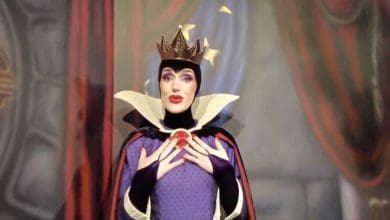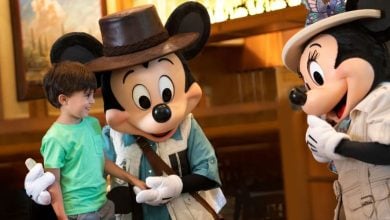New Disneyland Entry Policy Sparks Outrage Over Guest Privacy
Here’s What Guests Are Concerned About
The gates of Disneyland have always been a symbol of magic, excitement, and childlike wonder—but for some guests recently, those gates now represent something far more unsettling.
Imagine walking up to the park you’ve dreamed of visiting for years, only to realize you no longer need to show a ticket, scan your phone, or even say a word.
Instead, the system already knows who you are.
That’s right—Disneyland has quietly introduced facial recognition technology to streamline guest entry. While some hail it as a major leap in theme park convenience, others are raising eyebrows, and not just for scanning purposes. So, what’s really happening behind the scenes—and should guests be concerned?

A New Era of Entry Begins at Disney
In an effort to improve guest flow and reduce long wait times at the front gates, Disneyland has begun testing facial recognition technology as a replacement for traditional ticket scanning. The goal? To make park entry faster and more efficient, allowing guests to dive straight into the magic without fumbling for passes or barcodes.
.. sometimes I think they’re going a bit overboard with this shit. Next they’re gonna ask you to submit fingerprints and a blood test. – @FantogemeDan on X
.. sometimes I think they're going a bit overboard with this shit. Next they're gonna ask you to submit fingerprints and a blood test. https://t.co/gzX5qzYrOu
— Dan – Well and truly in my Joker Arc (@FantogemeDan) April 4, 2025
It’s not the first time Disney has dabbled in futuristic guest services. From MagicBands to mobile ordering and Genie+, the House of Mouse is no stranger to innovation. But this newest move has sparked fresh conversation—and controversy.
At face value (pun intended), the system seems like a win. Less friction at the gates. Shorter lines. Happier guests. Universal Orlando Resort, in fact, has already implemented facial recognition at Islands of Adventure and Universal Studios Florida, with mostly positive feedback.
But not everyone’s ready to smile for the camera.

When Convenience Meets Controversy
As word spreads about the new tech, so do concerns.
Some guests are worried about what this means for their privacy. What data is being collected? How long is it stored? Could it be used for purposes beyond park entry? A few critics have even joked—half-seriously—whether Disney might one day ask for a blood sample or a fingerprint to get in.
Though those fears are likely exaggerated, the debate isn’t just about entry systems—it’s about how far companies can (or should) go in gathering biometric data.
For international travelers, this development brings another layer of concern. Different countries have different standards for data protection, and some guests may be less comfortable with an American company collecting facial scans, especially if they don’t fully understand how that information is being managed or safeguarded.

Pros and Cons: Is This the Future?
Let’s break it down:
Pros:
-
Faster entry: No need to pull out tickets or phones.
-
Contactless process: Especially appreciated post-pandemic.
-
Reduced staffing needs: Which could help streamline operations.
Cons:
-
Privacy concerns: Sensitive biometric data is being collected.
-
Potential for misuse: Could the data be used for targeted marketing or worse?
-
Lack of transparency: Many guests don’t know how the system works or what they’re consenting to.
And while Disney assures guests that participation in the testing phase is optional and secure, critics argue that the lines between voluntary and normalized are quickly blurring.

What It Means for the Future of Theme Parks
Love it or loathe it, facial recognition is likely here to stay—not just at Disney, but across the theme park industry. The technology promises to reshape how guests experience parks from start to finish: skipping lines, verifying purchases, customizing experiences, and yes—even tracking guest behavior to fine-tune future offerings.
If successful, facial recognition could eventually replace more than just tickets. Imagine a day where your face unlocks your hotel room, links your ride photos, or even places your food order—without lifting a finger. It’s futuristic, no doubt. But it also brings a heavy responsibility for companies to safeguard data, ensure transparency, and offer opt-out options without penalty.
As for guests, it’s a new frontier to navigate. The magic of Disney has always felt like something out of a fairytale. Now, it’s brushing up against the realm of science fiction.

The Bottom Line: Disney Is Embracing the Future
The introduction of facial recognition at Disneyland signals more than a tech upgrade—it’s a glimpse into the evolving relationship between convenience and control in modern entertainment. While some see it as a gift wrapped in efficiency, others see a step toward something a bit more dystopian.
So, next time you step up to those iconic gates, ask yourself: Are you ready for the park to recognize your smile before you even say hello?
Or would you rather keep a little mystery in the magic?





